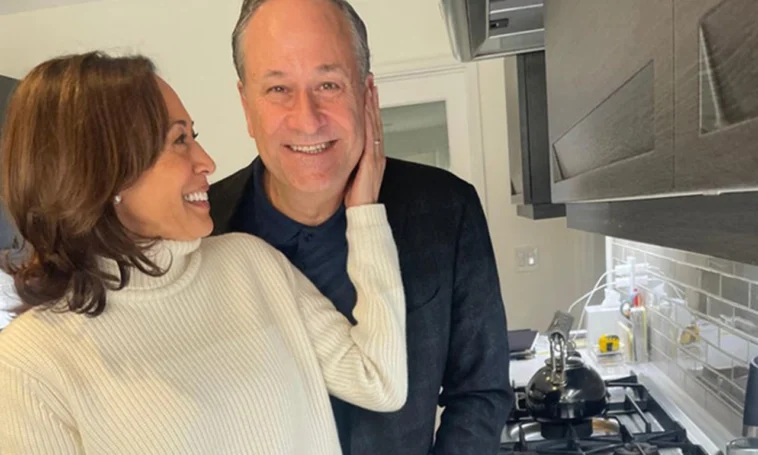Second Gentleman Doug Emhoff of the United States, recently made headlines when he likened his and Vice President Kamala Harris’s experiences in the White House to the satirical HBO series “Veep.”
This comparison, made during an appearance on Bravo’s “Watch What Happens Live,” shed light on the complexities and dynamics of their roles in the administration. Emhoff’s statement not only sparked intrigue but also invited reflections on the nature of political life and its intersection with popular culture.
In “Veep,” the central character, Vice President Selina Meyer, navigates a world of political intrigue, gaffes, and the challenges of leadership. Portrayed by Julia Louis-Dreyfus, Meyer’s character embodies a blend of ambition, incompetence, and occasional flashes of brilliance. The show’s comedic moments often arise from Meyer’s social faux pas, frustrations with her staff, and the absurdities of political life.
During the segment, Cohen asked Emhoff, “Do you watch ‘Veep?’ Have you ever seen ‘Veep?’” to which he responded, “We’re living it.”
Emhoff’s comparison suggests that the real-life experiences of Harris and himself echo the comedic chaos depicted in “Veep.” From awkward social interactions to navigating the limitations of their roles, Emhoff implies that elements of the show resonate with their daily lives in the White House. The parallel underscores the intricacies of political office, where reality sometimes mirrors satire.
One aspect of Harris’s public persona that invites comparison to Meyer is her occasional gaffes and convoluted speeches. Critics have drawn parallels between Harris’s verbal missteps and Meyer’s comedic blunders.
For instance, during a speech on reproductive rights at Howard University, Harris delivered a convoluted statement that left many scratching their heads. Her tendency to engage in what some have termed “word salads” contributes to the perception that her public speaking can be erratic and unclear.
Similarly, Emhoff referenced a moment where Harris attempted to explain artificial intelligence to a group of leaders, referring to it as a “fancy thing” before delving into a convoluted explanation.
These instances, while perhaps indicative of the complexities of the topics at hand, also provide fodder for comparisons to the fictional world of “Veep,” where characters often struggle to articulate themselves effectively.
Despite the comedic undertones of Emhoff’s comparison, his admiration for Harris’s dedication to her family and public service shines through. Emhoff’s acknowledgment of Harris’s lifelong commitment to public service underscores the seriousness with which they approach their roles in the administration.
The juxtaposition of comedy and earnest dedication reflects the multifaceted nature of political life, where moments of levity coexist with moments of gravity.
Emhoff’s revelation about their relationship with President Biden and First Lady Jill Biden further highlights the close-knit nature of the current administration. Describing their frequent interactions with the Bidens, Emhoff’s comments paint a picture of camaraderie and collaboration among the highest echelons of power.
The image of the four of them together, working tirelessly for the betterment of the nation, evokes a sense of unity and purpose amidst the challenges they face.
The parallels between “Veep” and the real-life experiences of Harris and Emhoff offer insights into the complexities of political office. While the show exaggerates for comedic effect, it nevertheless captures certain truths about the nature of power and leadership. The challenges of navigating bureaucracy, managing public perception, and maintaining personal integrity resonate across both realms.






Join the Community and Be a Part of the Conversation
You must be logged in or registered to post a comment.